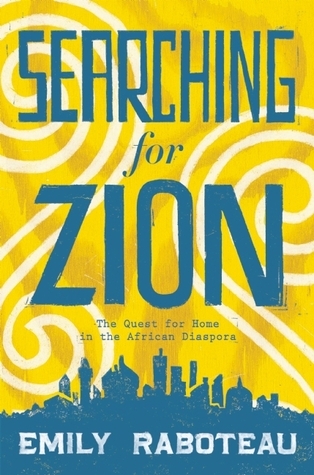In “Harlem Is Nowhere,” her incisive and moving study of what she calls “the Mecca of Black America,” Sharifa Rhodes-Pitts describes African-Americans’ longing for a never-known homeland as “the melancholy that compels us all: a yearning for the past from which our ancestors were irrevocably torn.”
That same yearning consumes Emily Raboteau, whose African-American grandfather was shot dead in 1943 Mississippi “for defending a black woman to a white man.”
While Raboteau admits that she’d grown up with “advantages up the wazoo” — in the sheltered Princeton world where her father is a professor — she also tells us that “as a consequence of growing up half white in a nation divided along racial lines, I had never felt at home in the United States.”
“Searching for Zion” chronicles Raboteau’s attempt to find a place she might call her own, through journeys to Israel, Jamaica, Ethiopia, Ghana and the American South.
In Israel, she speaks with Ethiopian Jews who had longed for Zion and found racism instead; she then visits a desert-dwelling colony of onetime African-Americans for whom Israel provides a respite from racism back home — and whom Raboteau describes as simultaneously “pathetic and prophetic.”
She is similarly disappointed in Jamaica and Ethiopia, where Rastas worship Haile Selassie — the deposed, despotic and long-dead Ethiopian emperor — while exhibiting virulent homophobia and rampant sexism.
Moving on to Ghana, Raboteau comes to grips with this land’s own past complicity in the slave trade — as well as the ongoing existence there of various forms of forced servitude. Here, as in Ethiopia, she also observes how insensitive black immigrants can be to native populations that the newcomers both displace and judge.
Raboteau herself is prone to hasty judgments — often delivered in a snarky tone. Given some of what she experiences — racism among both white and black Jews toward Palestinians, sexual harassment while attending a party in Ethiopia and foolish tourists everywhere — one can see where she is coming from.
But such facile observations also make one wonder where Raboteau is going — and how much she is really seeing along the way.
Part of the problem is that the restless Raboteau covers so much ground — she rarely touches down long enough to give us a sense of place.
But the bigger problem is Raboteau’s mind-set. She tells us in her opening that she grew up “angry,” and she also admits that as she began these journeys at age 23, “I hadn’t yet traveled beyond the borders in my own head.”
As Raboteau nears journey’s end in the American South – revisiting landmarks of the civil rights movement and moving toward her father’s Mississippi birthplace — her hearing sharpens.
And she finally grasps what her father, Bob Marley’s music and Martin Luther King Jr.’s sermons had been trying to tell her all along: The Promised Land is not a physical place. It is a state of mind — one that is built on human relationships, liberated from the shackles that bind us all.
Copy the Story Link
Send questions/comments to the editors.



Success. Please wait for the page to reload. If the page does not reload within 5 seconds, please refresh the page.
Enter your email and password to access comments.
Hi, to comment on stories you must . This profile is in addition to your subscription and website login.
Already have a commenting profile? .
Invalid username/password.
Please check your email to confirm and complete your registration.
Only subscribers are eligible to post comments. Please subscribe or login first for digital access. Here’s why.
Use the form below to reset your password. When you've submitted your account email, we will send an email with a reset code.